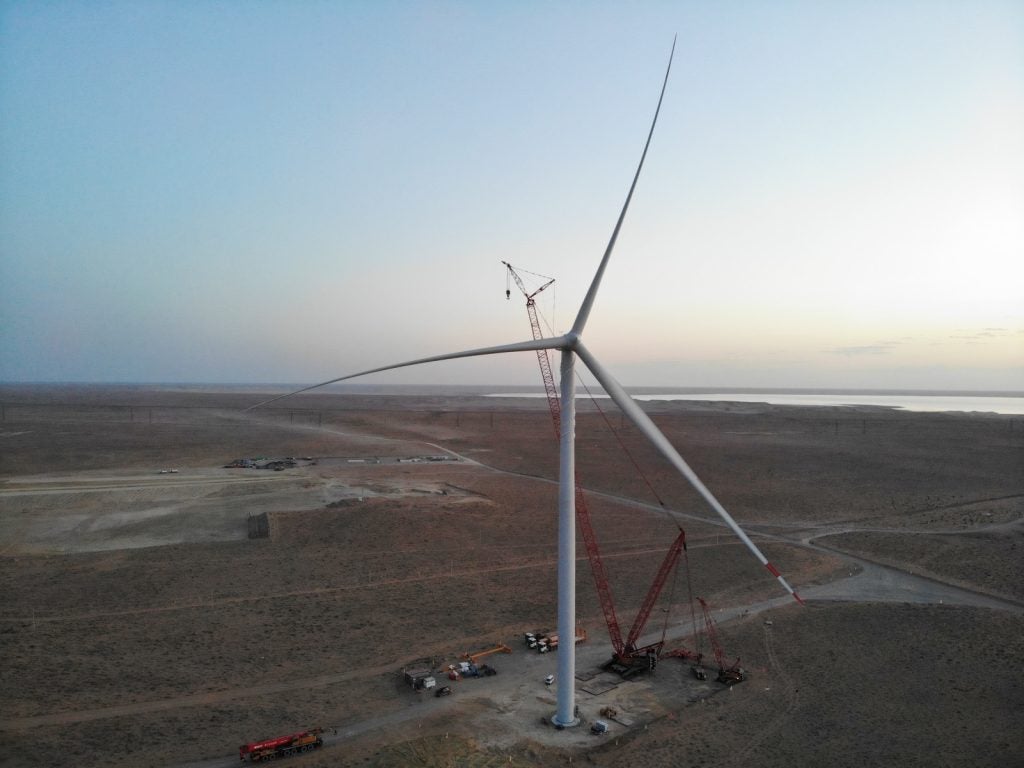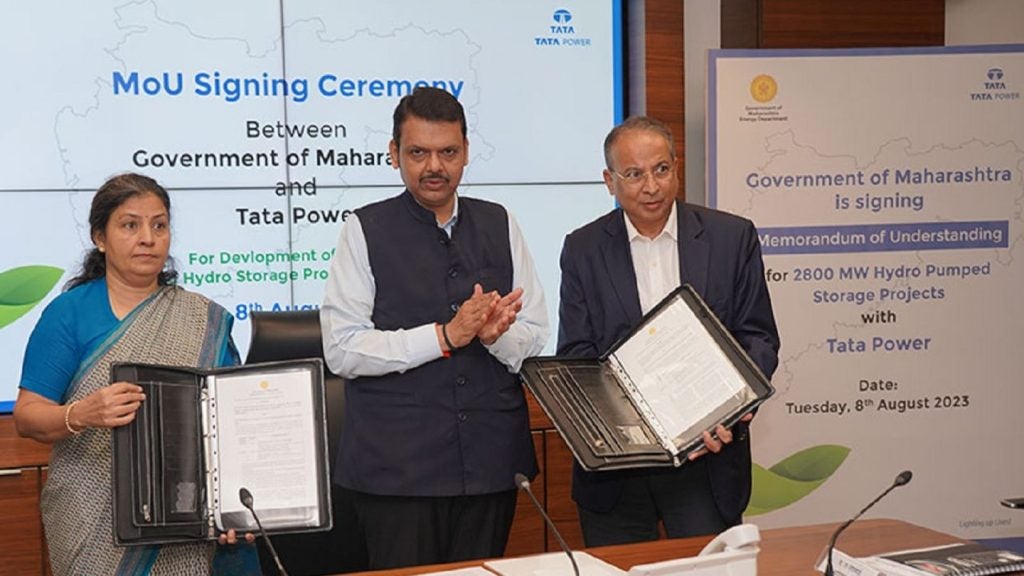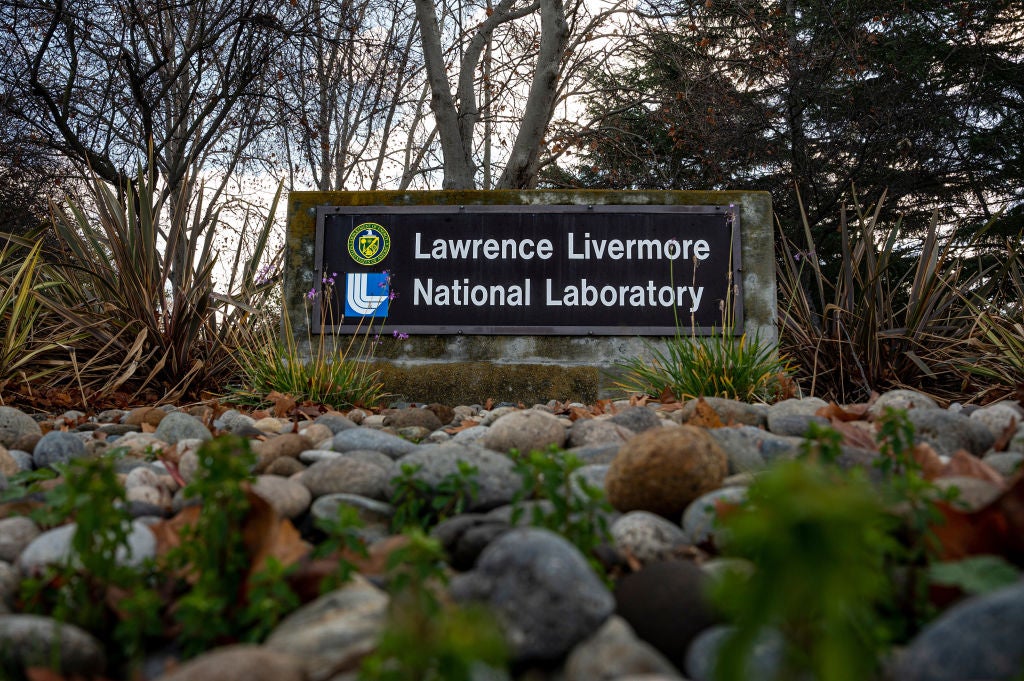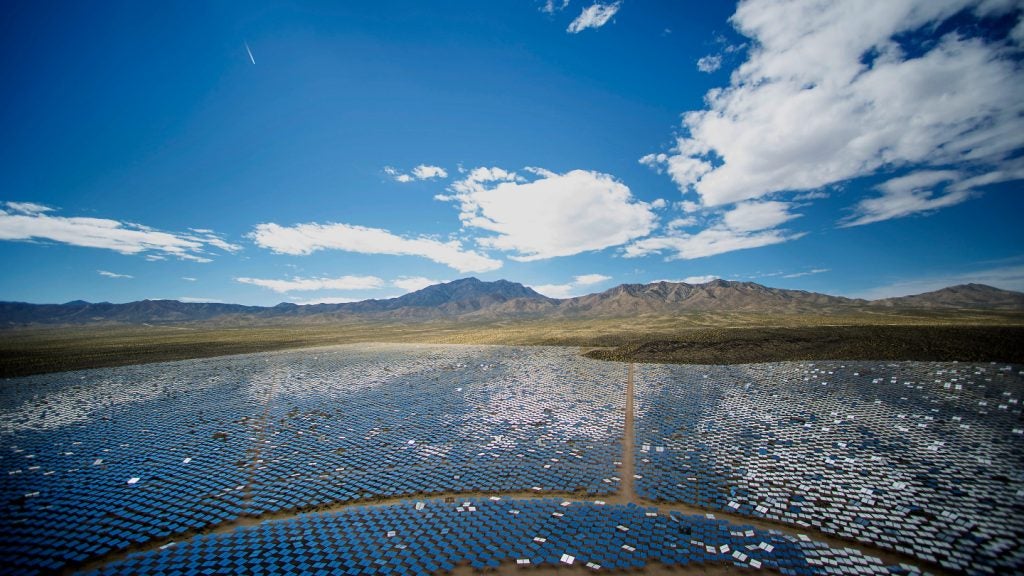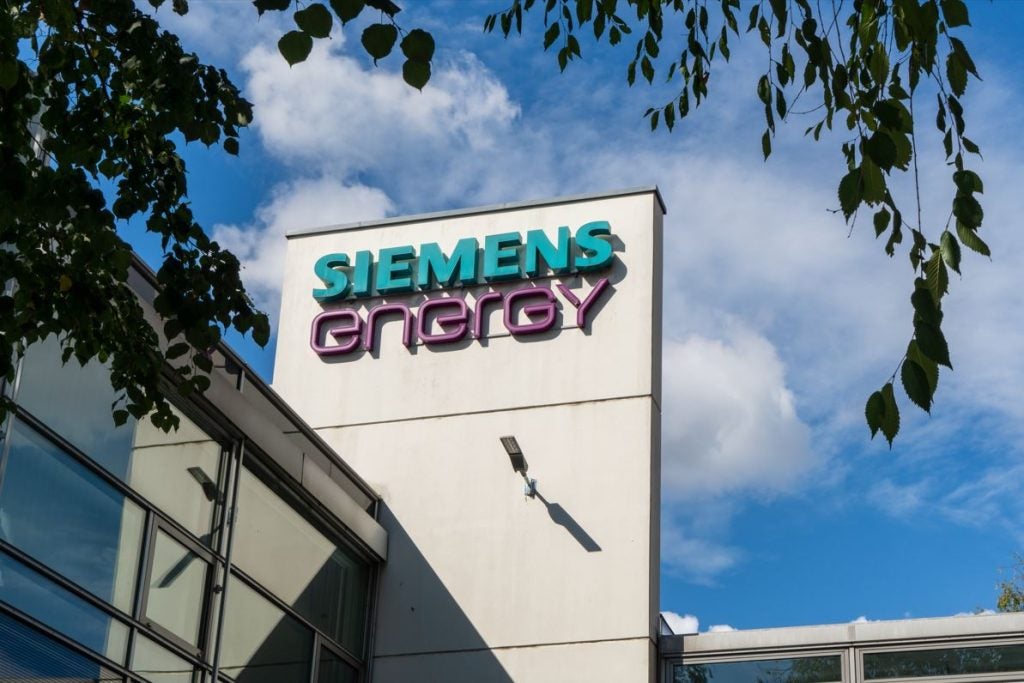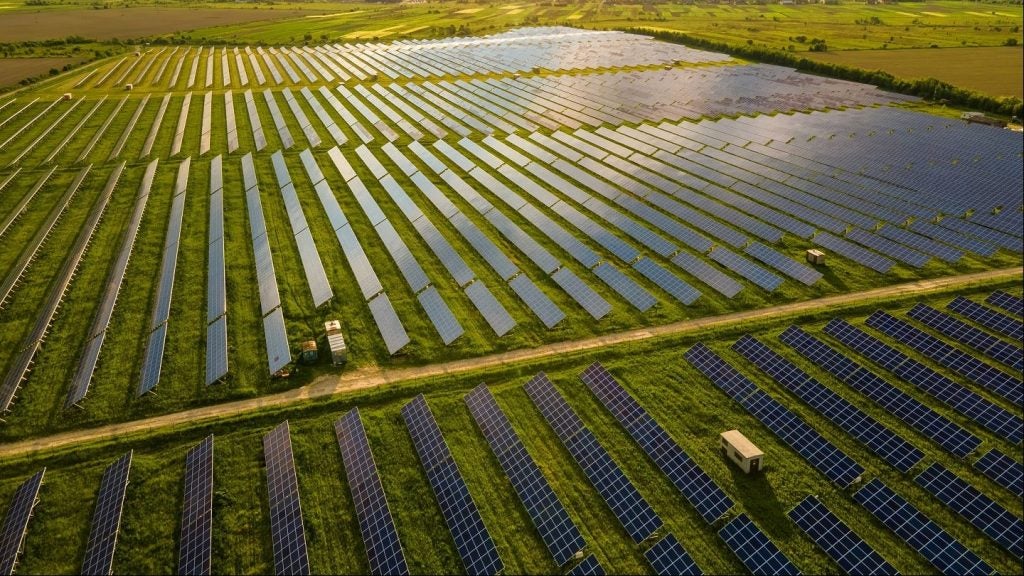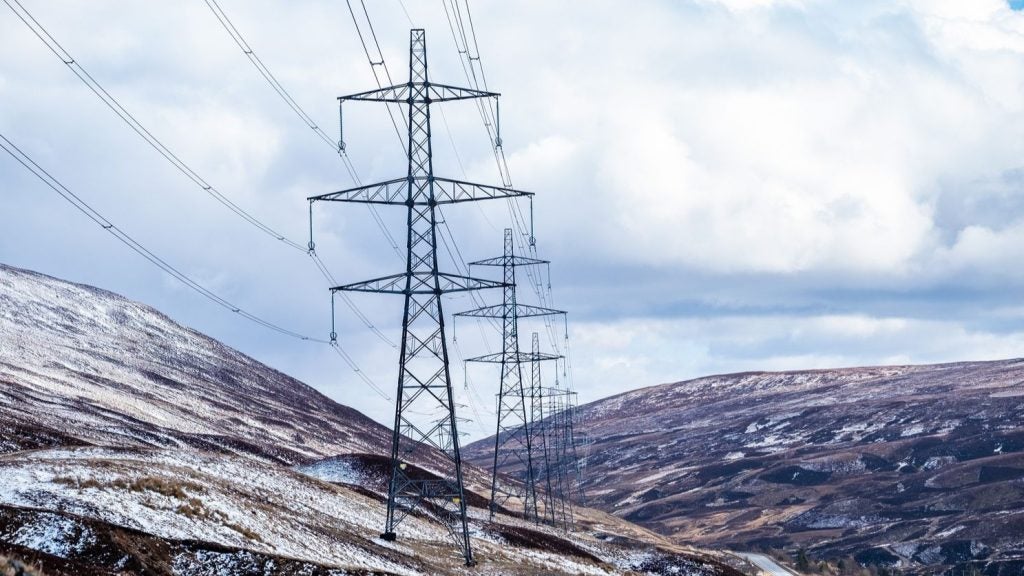ACWA Power, a Saudi Arabia-based power generation company, has installed the first wind turbine at the 500MW Bash wind farm in Uzbekistan.
Bash wind farm will be powered by 79 EN-171 wind turbines manufactured by Chinese manufacturer Envision. Each turbine has 6.5MW of power-generating capacity, a hub height of 100m and a rotor diameter of 171m.
The turbines are being installed by China Energy Engineering Corporation (CEEC), the engineering, procurement and construction (EPC) contractor for the project.
CEEC secured the EPC contract for the Bash and Dzhankeldy wind farms in December 2022.
The wind farm is located to the east and north-east of Lake Ayakagitma in the Gijduvan district of the Bukhara region.
The project will be completed in the first quarter of 2025. It will produce 1,650 gigawatt-hours of clean electricity annually while removing 750 tonnes of carbon dioxide emissions.
The electricity will be sold by ACWA Power to the National Electric Grid of Uzbekistan under a 25-year power purchase agreement.
It will be transmitted through a 162km-long, 500kV overhead line to the Karakul substation to the south of the site.
This transmission line will also be further developed by ACWA Power.
ACWA Power chief portfolio management officer Kashif Rana stated: “The successful installation of the first turbine on the Bash wind farm is just one of the many milestones that we are excited to mark on this project.
“Most importantly, the steady progress takes us closer to supporting and contributing to Uzbekistan’s long-term ambitions to increase the share of renewables in their energy mix.”


